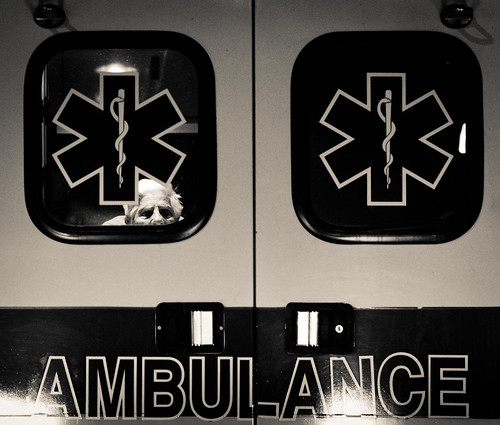
photo credit: Ambulance & Emergency (license)
Insurance/Health Cover is a very important issue, but also a personal one. Some TEFL teachers will not travel without, other teachers don’t even think about the idea.
This article looks at different sorts of insurances you might want to consider before heading overseas and teaching. What we present here are common scenarios but you should of course check to make sure of the details about what your school is providing for you and what is best for you.
At the same time you need also to ask yourself what kind of lifestyle you lead. If you are a middle-aged smoker who rides a fast motorbike and enjoys bungee jumping and drinking then that is one scenario. If you are a healthy young person who doesn’t drink or smoke and enjoys reading and going to bed early then that is another scenario!
Incidentally, one common question is from diabetic teachers worried about going abroad; for more on this see Useful Links below.
Health Insurance & Cover
This is perhaps the most important insurance for TEFL teachers. Normally health cover is provided by the school and you should check this in your teaching contract. At its most basic it will cover emergency medical care (if you suddenly fall ill or perhaps are in an accident). In most cases it is equivalent to the local state health insurance which means it will provide for you to go to hospital and receive basic medical care. In other words, it does not usually cover for:
- repatriation to your home country
- private rooms
- non-emergency health cover
- dental care
- long-term medical care
Depending where you go, there may be reciprocal agreements with your home country. So, for example, if you are from the United Kingdom and are working in Germany then you can expect the same level of care and coverage you would receive in a UK hospital while you are in Germany.
Before heading overseas always check out exactly what kind of health insurance you will be receiving from the school. Depending on your own preferences you may, or may not, want to extend this with private insurance allowing for repatriation, dental cover and so on.
On this note, bear in mind that medical costs abroad are often considerably cheaper than they are at home, especially in the USA. Whilst a visit to a dentist in the USA may easily cost several hundred dollars for a simple treatment, in China it is far, far less. But also remember that depending where you go, the level of medical care varies greatly. You can find superb world-leading hospitals in major cities throughout the world but also dirty, unsanitary places.
Quite simply, this means research the place you are going to and find out what is available and what likely costs are going to be for possible problems.
Personal Belongings Insurance
This will depend on you and what you are going to take abroad. In many cases by following simple rules you will have a trouble free time and your personal belongings will be safe. However, if you are taking abroad some expensive items then you might want to think about insurance. Or you might want to ask yourself if you really need to take them abroad!
On this point, it’s worth pointing out that many countries abroad are much safer in regards to burglary and theft than the US, UK, etc.
Cost of Insurance
Many of the large insurance companies offer 12 month travel/overseas insurance which includes one or more of the above insurances. If you decide to go this route, make sure that the insurance is valid even if you are working overseas and not just travelling. Prices vary depending on your age, circumstances and where you are going, but a basic insurance can start at around [currconvert base_curr=”USD” base_amount=”250″] depending on where you are gong and your age.
Another point to consider is where you get your insurance from. If you have found a job through and agent or a school and they offer you travel insurance as well, be sure to check out their prices. You may well find it cheaper to arrange your own insurance (possibly through the insurance company you/your family use back home).



0 Comments